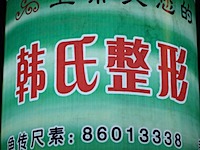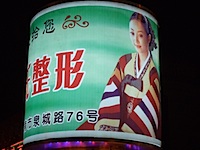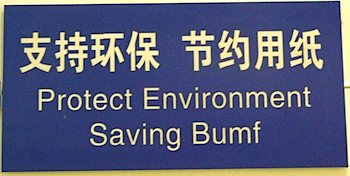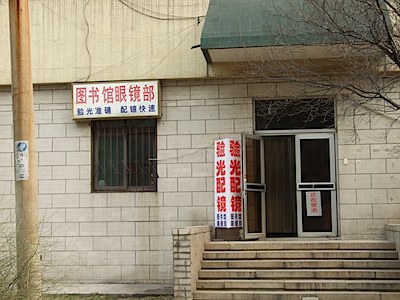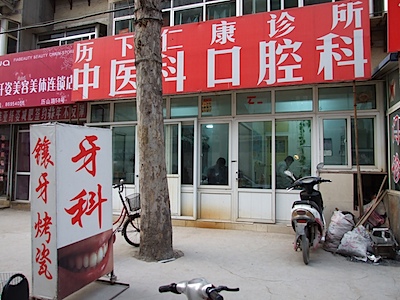I caught a taxi today to visit the Baotuquan(趵突泉)springs here in Jinan. I asked the driver what my chances were of catching a cab to the airport around 5:30 in the morning on Monday to get to Jinan airport to return to Korea and how long it would take from my hotel. After he answered, the driver went silent for a bit and then asked,
你是韩国人吗? Are you Korean?
The question came across quite sincere. On the one hand it seems reasonable to ask someone who is “returning” to Korea if they are Korean. On the other hand, one might also say it is reflective of a kind of ignorance of the fact that the vast majority of Korean citizens are anything but blond caucasians. It is possible that this driver may not, like other Chinese I have met here, have been watching Korean dramas and may not know much at all about the people of that peninsula other than, perhaps, that China fought a war there to “resist America” (抗美战争)and its “aggression” against North Korea in the 1950s. Or perhaps the driver assumed, quite reasonably, that, like China with its dozens of recognized ethnic groups, Korea too had an ethnic minority of caucasian-looking people living somewhere up in the hills where we preserve our language and traditional costumes. However, this is the second time that a Chinese person I met (the other time was a student of around high school age I met in Beijing years ago who asked me, in the presence of some Japanese friends, if I was Japanese) who only used my race to put me into the category of “foreigner” when seeing me and not immediately assuming that I could not be a citizen of some other Asian country.
Another example of this kind of relatively rare experience suggests that this doesn’t have to be due to any kind of ignorance about the relative racial homogeneity that still prevails in places like Japan and Korea, despite recent immigration. Once when I was at Taipei airport in Taiwan returning to Japan, where I was living at the time, I met a Korean citizen who was born and raised in Japan (在日), spoke only Japanese and no Korean or much English. We met at the bus stop at the then “Chiang Kai-shek airport” and soon discovered we were both heading to Tokyo. Although she was traveling as a Korean, she told me she was actually right now in the process of getting Japanese citizenship, over the strong opposition of her grandparents in Japan. After a few sentences exchanged in Japanese, she asked me, “Are you Japanese?”
As someone who lived her entire life in Japan and who spoke no language but Japanese, her question, again completely serious, can’t be blamed on any ignorance of the racial makeup of Japan. Instead, perhaps because of her own situation, she didn’t immediately associate being Japanese, as many others who grew up in that country would, with belonging to any particular ethnic group or race. She asked the question as we might reasonably ask someone of any race, who spoke with an American accent, if they were American (though even in this case, racial minorities like Asian-Americans will often get the, “Where are you from from,” question to get them to answer where their non-caucasian immigrant ancestors came from).
Given the reality of immigration in places like Korea and Japan, the time may come, in a decade or two, when this question becomes more common and natural.


